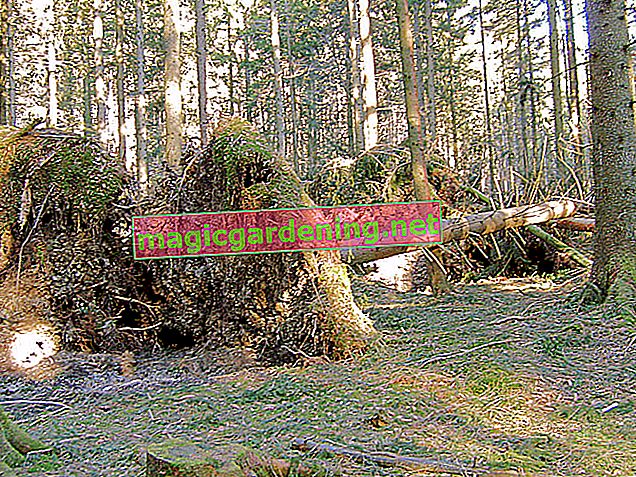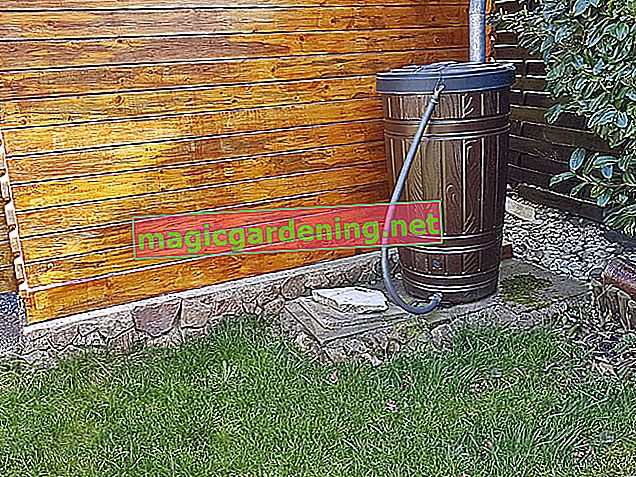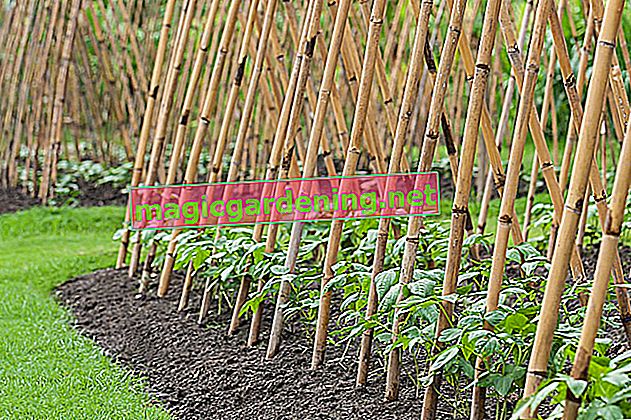
The root of the birch
Birch trees come in more than 50 different species. What they all have in common, however, is their root system, because birch trees are consistently flat-rooted. This means that the trees spread their network of roots in a ring directly under the surface of the earth. Birch trees therefore absorb liquid and nutrients from the surface water that seeps into the ground. In doing so, they prove to be extremely energetic competitors to all nearby plants, which also have a shallow root system - and to everything that could otherwise stand in the way, such as paved paths or light structures. In contrast to the shallow-rooted birch, so-called deep-rooted trees such as firs or pines obtain their nutrient supply from several meters below the ground.
also read
- The birch is a shallow root - what you should know
- The birch and its seeds - recognize and use correctly
- The birch and its buds - harvest and use correctly
Effects from the choice of location
Anyone planning to plant a birch should definitely consider its root type. Because this results in decisive criteria for the optimal choice of location. First of all, you should plan sufficient distance to other plants in the area, especially if they are also shallow-rooted. You most likely would not beat the energetic birch roots.
The closer company of deep-rooters, on the other hand, should be uncomplicated, at least as far as the roots' struggle for valuable water is concerned. Rather, the competition for light beyond the surface of the earth could play a role here, since the birch needs a location with as much sun as possible or at least light partial shade.
Other sources of problems with shallow roots
Birch trees grow at least 30 meters high and form very opulent crowns. For this reason alone, it is necessary to keep enough space available when planning the garden. Since the shallow roots also make their way very powerfully, nearby paved or otherwise built-up areas are also not ideal. You could lose out against the ever stronger roots and break open or break in.
Possible risk of falling
There is also a widespread concern among gardening enthusiasts that shallow roots could fall over more easily in stormy weather conditions. After all, these types of trees aren't that deeply anchored in the ground. In the case of the birch, however, the all-clear can apply: the soil conditions would have to be extremely poor and dry in order to prevent the roots from finding support. Just look for a suitable, slightly moist, loamy-peaty soil quality right when planting, and the tree will anchor itself securely. Other precautionary measures will help you if you want to be on the safe side:
- Secure young birches in the growth phase with a stake
- Secure the area from the risk of falling
- Plan enough space, for example, from power lines, playgrounds, garages and parking lots








